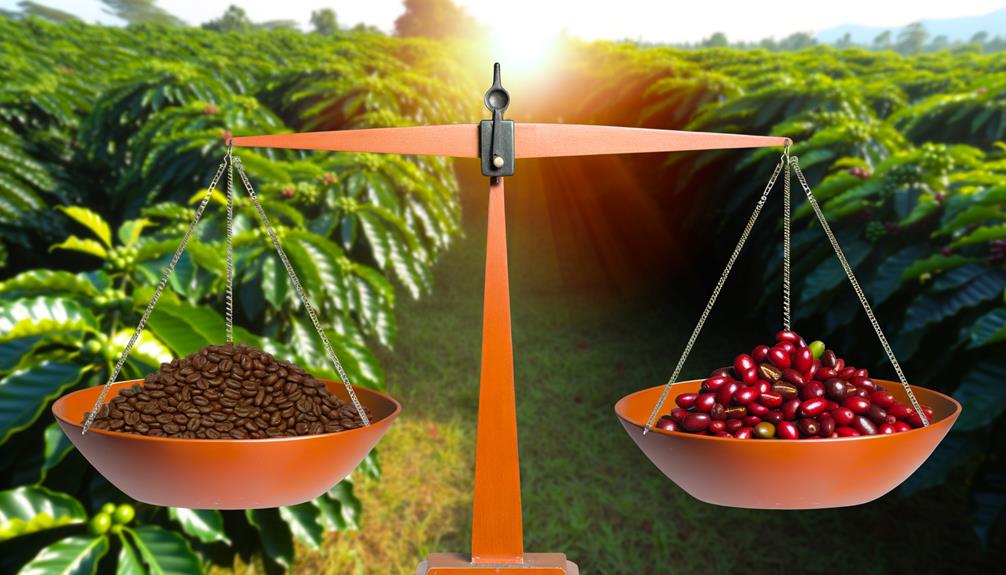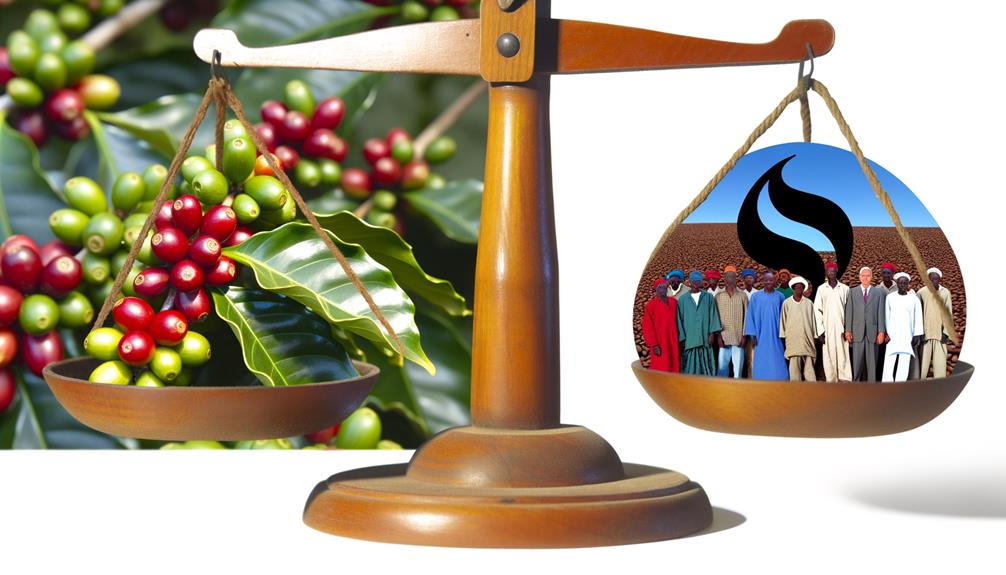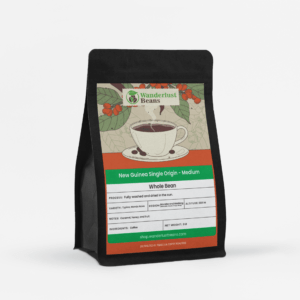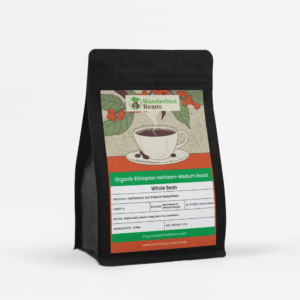In an era where ethical consumerism is increasingly gaining ground, the coffee industry, paradoxically, continues to grapple with a myriad of ethical challenges. From the environmental sustainability issues stemming from pesticide use and climate change threats, to the palpable socio-economic disparities with coffee farmers often at the receiving end of inequitable compensation, the industry’s ethical landscape appears rather bleak.
A closer examination into these issues, as well as the gender disparities prevalent in the industry, could provide valuable insights into the possible avenues for remedial action and reform.
Key Takeaways
- Coffee industry faces severe ethical concerns including unfair farmer compensation, child labor, and slave labor.
- Environmental issues include soil depletion, water pollution, and improper waste management in coffee production.
- Unfair trade practices and gender disparities further exacerbate the industry’s ethical problems.
- Implementing Fair Trade, Direct Trade, sustainable practices, and gender equality can address these issues and promote fairness in the industry.
Understanding Coffee Industry’s Labor Issues
Despite its global popularity, the coffee industry is plagued by severe labor issues, ranging from extreme wage disparities and child labor to debt peonage and potential slavery in supply chains, which are imperative to understand in order to address ethical concerns effectively. Coffee farmers typically earn less than 2% of the retail price, illuminating the stark compensation gaps within the industry.
Child labor is also alarmingly prevalent in coffee-producing regions. Children as young as six are frequently exploited, forced to work under hazardous conditions for long hours on coffee plantations. This not only deprives them of their childhood but also impacts their education and overall well-being.
Debt peonage represents another critical labor issue in the coffee industry. Many workers are entrapped in vicious cycles of debt and exploitation, unable to escape due to the lack of alternative income sources.
Furthermore, large coffee companies like Nestlé have publicly acknowledged the risk of slave labor within their supply chains. This highlights the urgent need for comprehensive reforms to address these labor issues, ensuring fair compensation, improved working conditions, and the elimination of child and slave labor. Thus, understanding these labor issues is a crucial step towards fostering an ethically sound coffee industry.
The Environmental Impact of Coffee Production
The coffee industry’s environmental footprint, particularly in relation to production methods, presents a significant array of concerns, from soil depletion and erosion to water pollution and biodiversity loss. Such issues are intrinsically tied to farmers’ choices in cultivation and waste management.
- Sun-grown coffee, while efficient for maximizing yield, depletes soil nutrients, requiring frequent replanting and increased use of agrochemicals.
- In contrast, shade-grown specialty coffee promotes biodiversity and prevents soil erosion, sustaining the health of the land.
- Processing methods also affect the environmental impact. Wet processing, for example, produces large amounts of waste water.
- Mismanagement of coffee waste can lead to water pollution, disrupting local ecosystems.
To counter these issues, sustainable supply chain practices and certifications such as Fair Trade and Organic Farming have emerged, promoting environmentally friendly production. These efforts aim to reduce the environmental impact of coffee farming and ensure the industry’s future viability. However, adoption remains a challenge due to economic pressures faced by farmers. As consumers, understanding these issues can guide our coffee choices towards more sustainable options, fostering a sense of belonging in a global community committed to maintaining the health of our planet.
Tackling Unfair Trade in Coffee Industry

Inequity looms large in the coffee industry, as the widening gap between coffee farmer earnings and retailer profits — a shift from a 1:3 ratio in the 1970s to a staggering 1:8 or 1:10 today — starkly illuminates. These disparities indicate a need for fair trade practices and fair retail pricing. Even Fair Trade prices often struggle to cover farmers’ costs, pointing towards the inherent pricing disparities in the coffee industry.
The rise of boutique roasters pushing industry prices up may seem counterproductive but could potentially benefit farmers by ensuring fairer compensation. This, however, calls for increased transparency. Unfair trade practices can be combated with direct communication with farmers, allowing for a clearer understanding of their costs and the establishment of a fairer pricing mechanism.
Gender Disparities in Coffee Farming
While labor in coffee production is predominantly performed by women, accounting for up to 70% of the total workforce, there is a stark gender disparity as these women are often sidelined from decision-making and leadership roles within the industry. This gender disparity not only negates the principles of equity and fairness, it also inhibits the full potential of the coffee industry.
These disparities manifest in various ways:
- Women-run farms, although vital for promoting gender equality, are often undervalued and under-resourced.
- The male-dominated coffee industry often limits access to resources and opportunities for women.
- The empowerment of women in coffee farming is often overlooked, despite its potential for community development.
- Despite contributing significantly to the industry, women are often absent from leadership roles, limiting their influence on decision-making processes.
Addressing these disparities is crucial to realizing gender equality in coffee farming. Empowering women, enhancing their access to resources, and promoting their inclusion in decision-making and leadership roles can pave the way for a more equitable coffee industry, beneficial for all stakeholders. It is a matter not just of ethics, but of industry sustainability and community development.
Promoting Sustainability and Fairness in Coffee

Sustainability and fairness are two pillars that, if strengthened, can transform the future of the coffee industry, addressing issues from genetic diversity in coffee plants to gender inequality. Fair Trade and Organic certifications ensure coffee farmers receive a living wage, promoting sustainable coffee production. However, conscious consumer choices and direct trade models are vital in enhancing these efforts.
| Strategies | Description | Impact |
|---|---|---|
| Fair Trade Certification | Ensures fair compensation for farmers | Promotes sustainable coffee, supports living wage |
| Direct Trade | Direct supply chains between farmers and buyers | Higher profits for coffee farmers, enhances fairness |
| Conscious Consumer Choices | Purchasing certified or women-grown coffee | Supports Fair Trade, addresses gender inequality |
| Sustainable Agriculture | Adoption of environmentally sustainable practices | Protects genetic diversity, promotes sustainable coffee |
| Gender Equality | Inclusion of women in decision-making roles | Addresses gender inequality, promotes fairness |
Direct trade, by establishing direct supply chains, ensures more profits reach coffee farmers. Moreover, engaging women in decision-making roles addresses gender inequality. Together, these strategies promote a more sustainable, fair, and prosperous coffee industry.
Frequently Asked Questions
What Are the Ethical Issues Surrounding Coffee?
Fair Trade and Organic Certification aim to address ethical issues in coffee production, like worker exploitation, child labor, and harmful farming practices. However, price fluctuations, environmental impact, and high water usage remain significant concerns.
What Are the Major Societal Issues With Coffee?
Major societal issues concerning coffee include addiction, health implications, market monopolization, wastage, and smuggling. Furthermore, fairtrade policies, sustainable packaging, climate impact, water consumption, and effects on local economies warrant significant consideration for sustainable industry practices.
What Is the Biggest Issue Facing Coffee Production?
The most pressing issue in coffee production is climate change, exacerbating deforestation, biodiversity loss, and crop diseases. It also heightens the reliance on harmful practices like excessive pesticide usage and chemical fertilizers, jeopardizing environmental sustainability.
What Makes Coffee Ethical?
Coffee becomes ethical when brewed with ingredients of Fair Trade, Sustainable Farming, and Ethical Sourcing. It is the awakening aroma of Workers’ Rights, Community Impact and Responsible Consumption, all wrapped in Green Packaging of traceability transparency.
Conclusion
In conclusion, the ethical challenges in the coffee industry encompass environmental, labor, trade, and gender issues, necessitating concerted efforts for rectification.
With a startling statistic revealing that over 25 million people depend on coffee farming for their livelihood, enhancing ethical practices becomes imperative.
Emphasizing fair trade, organic farming, and gender equality can fortify the sustainability and fairness of the industry, safeguarding both the environment and the rights of workers.









